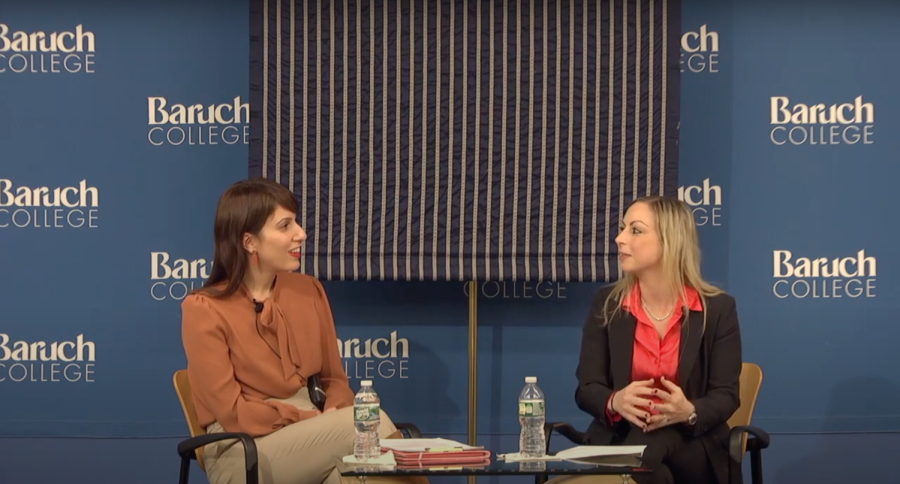Baruch College’s business school’s namesake, Larry Zicklin, discussed generative AI and its implications within businesses in the latest installment of his webinar series on July 11.
Zicklin opened the webinar by acknowledging the surge in AI discussions and asked speakers to identify the difference between AI and what Google has been doing.
Professors Yafit Lev-Aretz and Nizan Geslevich Packin of the Department of Law expressed that the two technologies are similar; however, everyone can use it and it becomes personalized.
“So, I have an account with ChatGPT, I spent hours, you know, interacting with it, and it remembers conversations we’ve had months before,” Lev-Aretz told Zicklin. “So, the level of personalization is, I mean, it has been very sophisticated.”
Packin recalled her and Lev-Aretz joking that they found “the perfect research assistant” because ChatGPT can be useful and efficient. However, there are times when it is incorrect depending on prompt specificity.
Conditionally, Zicklin asked if professors should teach prompt writing at Baruch, to which both speakers agreed. Lev-Aretz acknowledged that prompt writing is gaining traction while emphasizing the importance of teaching students how to think and be “critical in their approach to learning.”
“So obviously, the more you’re understanding the way that the data is collected, trained, reworked, the better you are at giving prompts, and so you are correct,” Packin said. “Now we’re seeing more and more companies asking or seeking to hire people that have actual experience — not maybe with just programming but also really kind of, you know, giving prompts or revising prompts working with AI in a more intimate way like that.”
The Ticker previously reported that ChatGPT raised fears that AI could replace jobs by automating tasks, but its shortcomings in accuracy and biases keep the human element valuable.
“I think in general, a lot of white-collar based type professions are going to suffer,” Packin expressed. “The artists and the creators that are no longer being asked to design certain websites or invitations or create music or write a poem or do all these different things because you now have the ability to generate something on your own and ask for it to be a Shakespearean style with specific instructions and prompts.”
She cited companies like Fiverr International Ltd. as an example, to which Zicklin added to her statement by noting that Chegg Inc. had lost 90% of its market value because of AI.
Lev-Artez was more optimistic that white-collar jobs would not be replaced, but that certain tasks within them will be. She stated, “we’re still going to want to see a human in the loop.”
Additionally, Packin discussed that businesses would be reluctant to use it because of its inaccuracy, using the lawyer in New York who got in trouble for relying on ChatGPT as an example.
“I think a lot of the law firms and a lot of the businesses are understanding that at the end of the day, it’s a game of numbers,” Packin said. “And whether 80% of it is accurate or not, is less helpful when you want to guarantee to your customers and clients that you’re giving them the best service possible.”
Zicklin closed the webinar by expressing that after the conversation, he felt “much more optimistic about this” and further explained how his only problem is our ability to coexist with machines.
“This is why we must keep the human in the loop,” Lev-Aretz said in response to Zicklin’s concern. “And I want to ask all the participants on this call just to remember that whenever you’re using whatever technology it is, keep the human in the loop.”








